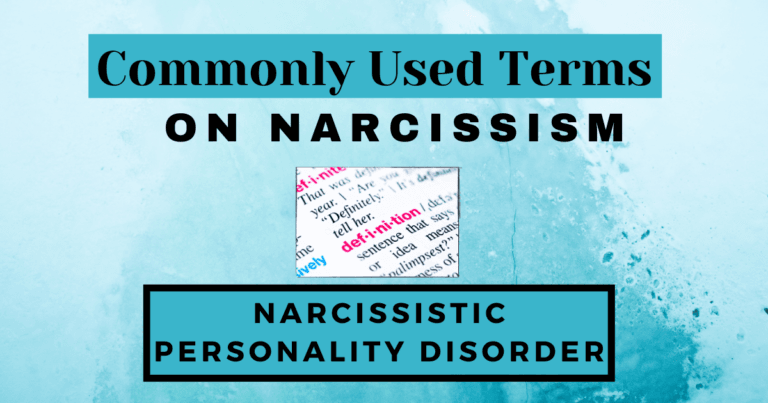7 Crucial Legal and Emotional Strategies to Deal with a Narcissist in a Divorce
Narcissist in a Divorce
Divorcing a narcissist presents unique challenges, both legally and emotionally. Narcissists are often manipulative, vindictive, and unwilling to compromise, making the divorce process more painful and difficult. However, with the right strategies in place, you can protect yourself, minimize emotional harm, and achieve a fair outcome. Below are seven crucial strategies to help you navigate a divorce with a narcissist.
Related: Do Boundaries Really Work with Narcissists? Learn Effective Strategies
Related: Why Narcissists Struggle with Empathy: Understanding the Science Behind their Behavior
Related: Understanding Why Narcissists Create Chaos
Related: You Must Protect Yourself from Their Emotional Manipulation, Learn Strategies
1. Document Everything
One of the most important steps when divorcing a narcissist is to document everything. Narcissists tend to distort reality, manipulate situations, and create chaos. Keeping thorough records of interactions, finances, and behaviors will help you in court if necessary.
Why It Works:
Having detailed documentation helps counter the narcissist’s manipulation and false narratives. It can serve as evidence in court to prove your side of the story, which is particularly important if the narcissist tries to gaslight or undermine your credibility.
What to Do:
Document all communications, including text messages, emails, and phone calls. Keep track of finances, child-related expenses, and any significant incidents that occur during the separation process.
2. Set Firm Boundaries
Narcissists thrive on violating boundaries, and during a divorce, they will likely test yours repeatedly. It’s essential to establish and maintain firm boundaries to protect your mental and emotional well-being.
Why It Works:
Boundaries help reduce the narcissist’s ability to manipulate or control you. By setting clear limits on communication and interactions, you protect yourself from unnecessary drama and stress.
What to Do:
Clearly define acceptable ways for the narcissist to contact you—preferably through email or a parenting app if children are involved. Avoid engaging in emotional arguments and stick to the facts. Limit in-person meetings unless absolutely necessary.
3. Hire an Experienced Lawyer
A skilled divorce lawyer with experience dealing with narcissistic personalities is crucial. Narcissists are notorious for dragging out legal proceedings, using the court system to harass or manipulate their spouse. An experienced lawyer will understand these tactics and know how to counter them effectively.
Why It Works:
An experienced attorney will anticipate the narcissist’s manipulative tactics and work to protect your interests, ensuring that you aren’t taken advantage of or worn down by lengthy legal battles.
What to Do:
Find a lawyer with a strong track record in high-conflict divorces. Be open with them about the narcissistic behavior you’ve experienced, and ask for strategies they’ve used in similar cases.
4. Be Willing to Walk Away and Enforce "No Contact"
Narcissists feed on control and attention, and they will try to drag out the divorce as long as possible to maintain power over you. To cut off their control, you need to be willing to walk away and enforce a strict “no contact” policy wherever possible.
Why It Works:
By refusing to engage with the narcissist outside of necessary legal or parenting-related communication, you starve them of the attention they crave. “No contact” also helps you focus on healing and reduces the opportunities for the narcissist to emotionally manipulate you.
What to Do:
Communicate only when absolutely necessary—ideally in writing and through a legal platform. Remove the narcissist from your personal life completely and avoid giving them any emotional response to their provocations.
Why Boundaries Often Fail with Narcissists
| Reason | Explanation |
|---|---|
| They Disregard Rules | Narcissists see boundaries as a challenge to overcome, not a limit to respect. |
| Testing Limits | Narcissists constantly test boundaries, looking for weak spots to exploit. |
| Manipulation | They use guilt, charm, or aggression to force you to relax your boundaries. |
| Persistent Pressure | Narcissists often wear you down through relentless pressure to bend your limits. |
| Revenge Tactics | If boundaries are enforced, they may retaliate with emotional or legal harassment. |
5. Expect the Narcissist to Play the Victim
Narcissists often portray themselves as the victim during a divorce, regardless of the facts. They may attempt to garner sympathy from friends, family, or even the court by painting you as the aggressor. Understanding this behavior in advance will help you prepare and stay focused.
Why It Works:
Recognizing the narcissist’s victim mentality enables you to stay one step ahead of their tactics and avoid getting emotionally pulled into their narrative. Knowing that they will likely try to turn people against you helps you manage your own expectations.
What to Do:
Stay calm and stick to the facts. Do not engage in emotional arguments or try to disprove their lies in front of others—trust the evidence and your legal team to do that for you. It’s also important to build your own support network of people who understand the truth.
6. Prioritize Self-Care
Divorcing a narcissist is exhausting and emotionally draining. It’s essential to prioritize self-care throughout the process to maintain your mental and emotional well-being. Taking care of yourself ensures that you have the strength and resilience to navigate the challenges ahead.
Why It Works:
Focusing on self-care helps reduce stress, anxiety, and depression. It also strengthens your ability to cope with the narcissist’s manipulative tactics and protect your emotional health.
What to Do:
Establish a self-care routine that includes exercise, therapy, journaling, and relaxation techniques like meditation or yoga. Surround yourself with supportive friends and family who can offer encouragement and a listening ear.
7. Focus on the End Goal: Freedom
Divorcing a narcissist may feel like an uphill battle, but it’s important to keep your focus on the end goal: freedom. Staying strong and persistent will eventually lead to a life free from manipulation, control, and emotional abuse.
Why It Works:
Keeping your focus on the future—a life without the narcissist’s influence—helps you stay motivated throughout the divorce process. It gives you the strength to push through the difficulties knowing that better days are ahead.
What to Do:
Visualize your post-divorce life as a source of hope and motivation. Focus on building a future filled with peace, happiness, and emotional security.
The information provided in this article is for educational and informational purposes only. It is not intended as legal advice and should not be relied upon as such. Every legal situation is unique, and it is important to consult with a qualified attorney regarding your specific circumstances.
narcissist in a divorce narcissist in a divorce narcissist in a divorce narcissist in a divorce narcissist in a divorce narcissist in a divorce narcissist in a divorce narcissist in a divorce narcissist in a divorce








